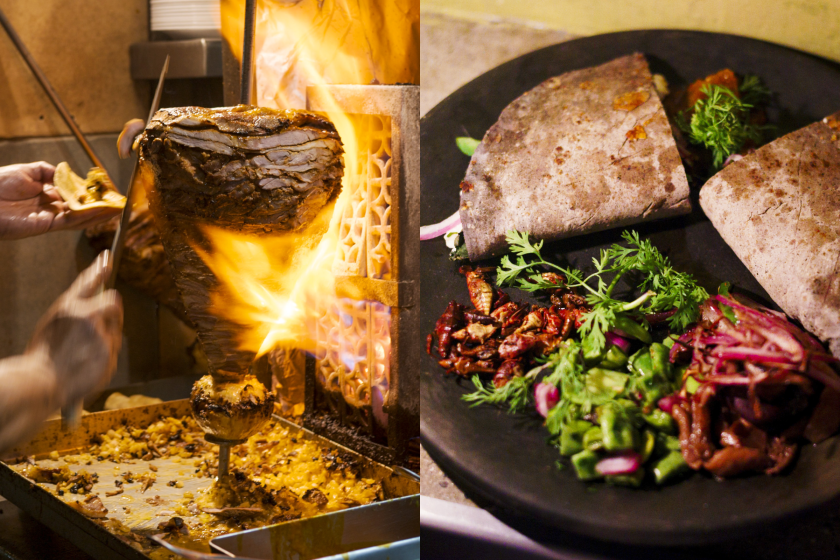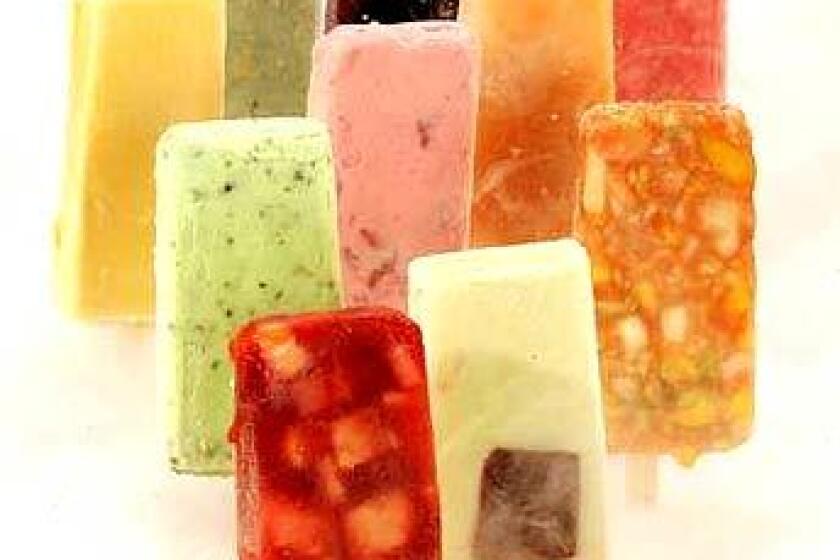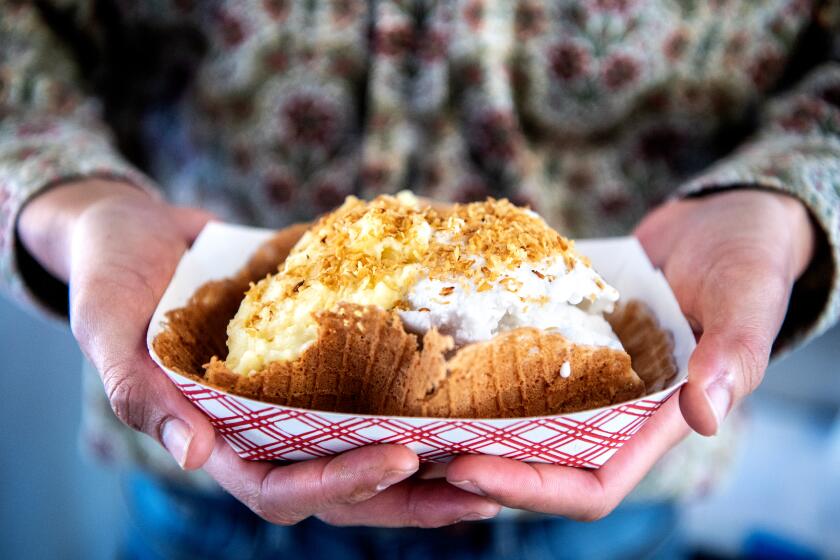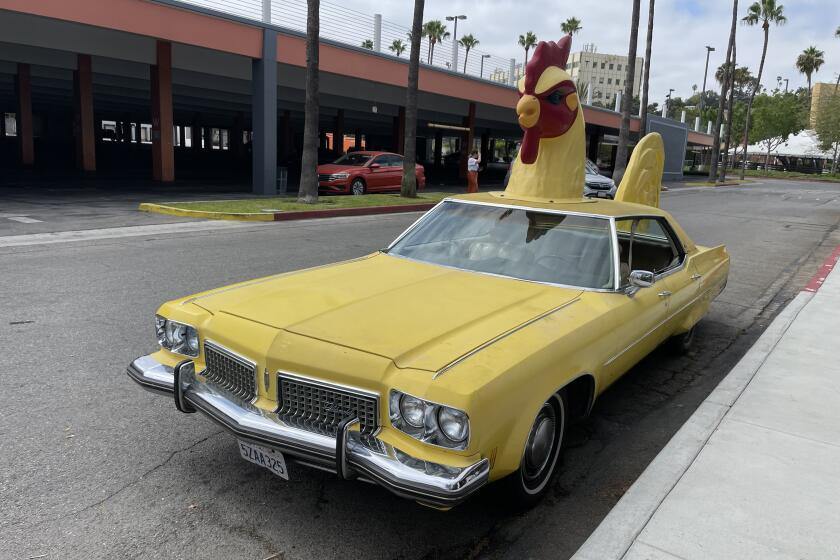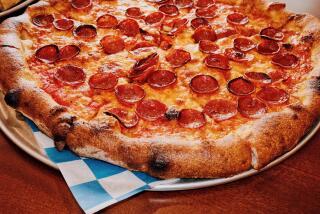Cooling off with these Oaxacan paletas and sidewalk pad Thai
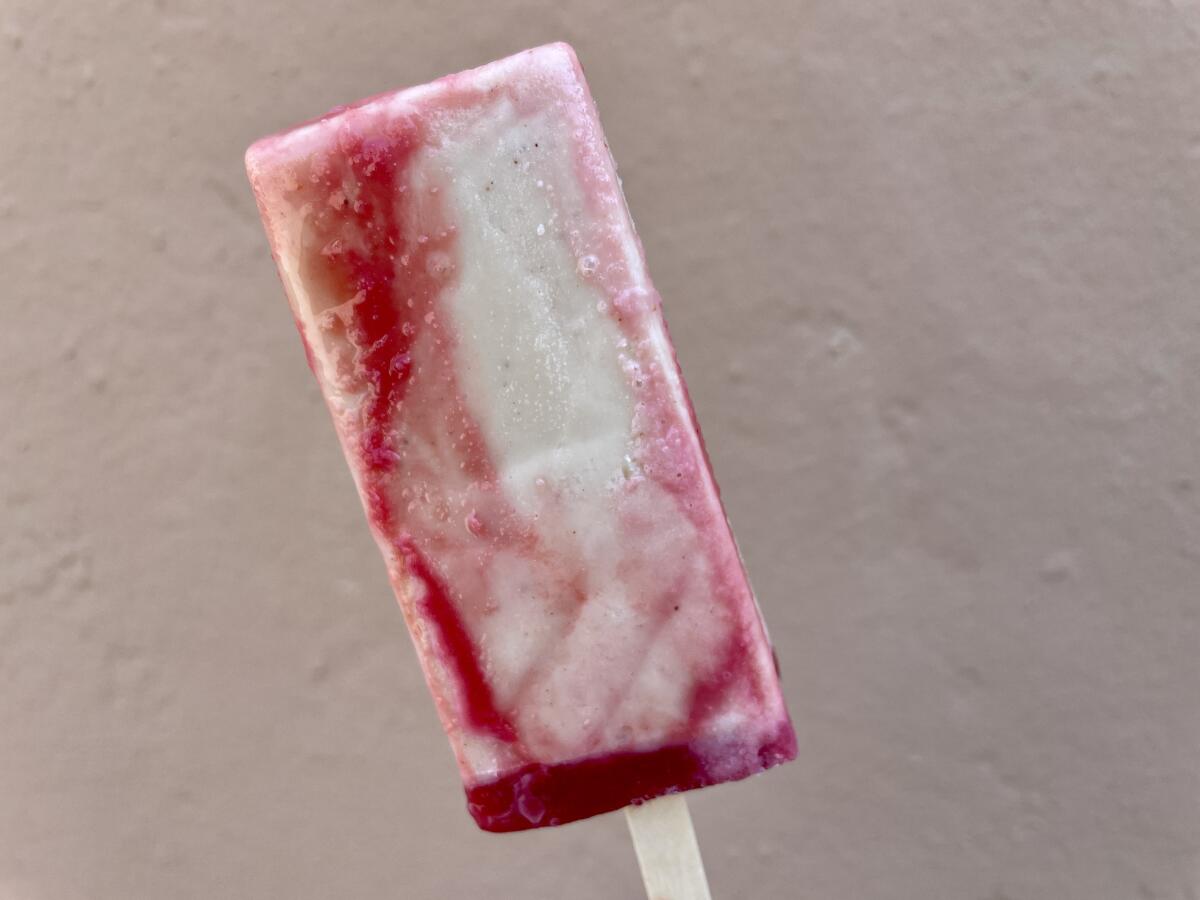
- Share via
I hope the air conditioning in your home works. Or at the very least in your car.
The ceiling fan in my dining room isn’t picking up enough speed for any real relief. Any cooking that involves fire or the oven is out of the question.
When the heat feels like punishment and my clothes stick to my body, you can find me licking a paleta under the shade of a tree.
Oaxaquena paleta from Viva Cafe
If you’re in need of icy bliss, look no farther than Viva Cafe in Koreatown. The pristine glass cooler is packed with rows of paletas and vats of ice cream.
The colors span the spectrum and the flavors celebrate owners Rafael Miguel and his daughter Briseida Mendez’s Oaxacan culture.
Before opening the shop in late 2020, Miguel worked as the lead cook at La Barca in downtown L.A. for more than 20 years. Mendez worked in education.
Food editor Daniel Hernandez shares everything to put on your bucket list when traveling to the capital of Mexico.
“This shop is a family dream,” Mendez said. “We wanted a place that would celebrate our culture, and it all goes back to Oaxaca, the place we came from.”
The Oaxaquena paleta is an homage to the ice cream stalls Mendez frequented as a kid. It’s an elaborate concoction that involves three kinds of milk, a little smoke and a lot of fresh pitaya.
“It’s a blend of two popular ice cream combinations in Oaxaca, leche quemada and pitaya,” she said.
Miguel spends hours removing the spikes from the fresh pitaya to prep the fruit for the paletas and ice cream. He simmers and smokes three milks (he wouldn’t divulge the exact varieties) for a couple of hours.
Handmade paletas Mexican ice pops have traditional flavors and cutting-edge style.
The pops look like rectangles of white and fuchsia marble, with striations of a deep, vibrant pink throughout. At first there’s the milk, with a subtle smoky flavor that coats your mouth. Then pitaya rips through the richness with a burst of fresh fruit.
It’s cold, sweet and milky. Not quite ice cream on a stick. Not quite a popsicle. It is the best of both icy worlds in a slim, fast-melting pop. You will likely finish the paleta on the walk back to your car. Maybe order two.
Pad Thai and fried chicken from Miya on Lake
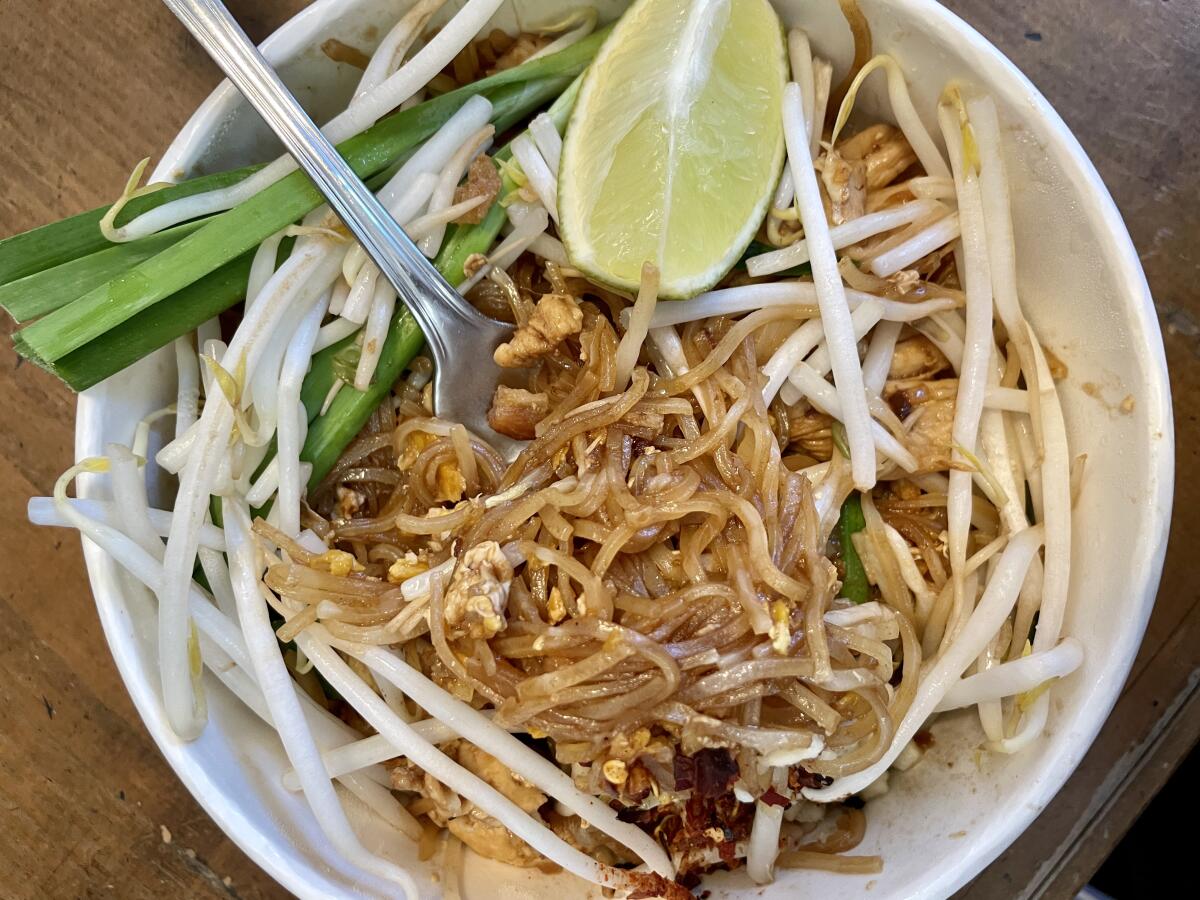
Miya is the kind of Thai restaurant you want near your house. A place where the menu is handwritten and posted near the door. On Tuesdays, everything is plant-based, with the exception of egg. And whether it’s pad Thai, red pumpkin curry or crab rolls, it’s all going to be good.
It’s the newest restaurant from David Tewasart, who opened the Thai food stall Sticky Rice at Grand Central Market a decade ago. Sticky Rice has since expanded with locations in Echo Park, Highland Park and soon, on West Third Street. Miya, which opened earlier this year, is what Tewasart calls his passion project. He named it after his 6-year-old daughter, Miya.
“Naming something I love to do after someone I love was a no-brainer,” he said. “We’re just kind of like going with home-style Thai food, which is the way we cook at home and the way my mom used to cook for me.”
There’s an actual food competition to snag a vending spot at the weekly Wat Thai Buddhist temple food court.
There’s a short menu of soups, noodles, stir fries, curries and papaya salad. At any Thai restaurant, I usually forgo the pad Thai for a fiery meat salad. Most Thai chefs I know would characterize pad Thai as a dish catered to Americans. But I’ve always been a fan of Tewasart’s pad Thai at Sticky Rice. It’s the antithesis of the usually too sweet, too gloppy, red-tinged noodles you might be used to.
And I like the version at Miya even better. Here, Tewasart serves the pad Thai his chef Phayung Wannathaworn makes for family meal.
“More savory, less sweet, less saucy,” Tewasart said. “Everyone is so used to having pad Thai a certain way. I love it this way. “
To make his sauce, Wannathaworn cooks down a mixture of fresh-squeezed tamarind juice, fish sauce and palm sugar low and slow for at least six hours.
At the request of Tewasart, he uses thin, pho-style rice noodles that are cooked until just soft enough to bend. They’re fried with bits of pickled radish, squares of baked tofu and egg, then garnished with crumbled pork cracklings, raw been sprouts, stalks of green onion, dried chiles, crushed peanuts and a wedge of lime.
The noodles are dry and a little sticky, with the sauce turning into a condensed paste that clings to each strand. It’s richly flavored with the shrimpy funk of fish sauce and the tangy, citrus-y sweetness of the fresh tamarind. Wannathaworn uses a little bit of the rendered pork cracklings’ oil to fry the noodles, amplifying the savoriness with a meaty boost.
The goal was to hit as many female-run restaurants serving fried chicken in a day as possible. We made it to 10.
If you’re lucky, the fried chicken will make an appearance on the menu. It’s the same fried chicken the Sticky Rice team served for a time from a take-out window in Highland Park under the name Hot Gai chicken (see what they did there?). Golden-skinned and superbly crisp, the chicken tastes of fish sauce, soy sauce, garlic and black pepper. And the crunchy coating, which at first glance looks like crushed corn flakes blanketing the chicken, comes from a batter of both tempura and rice flour. (If you need a visual aid, head to my Instagram).
The restaurant has plans to offer indoor dining and to expand its hours to include lunch. For now, you can eat your pad Thai on one of the few provided stools on the sidewalk or call ahead for takeout.
Where to eat now
Viva Cafe, 3259 W. 8th St., Los Angeles, (213) 908-5779
Miya on Lake, 2470 Lake Ave., Altadena, (626) 298-6259
More to Read
Eat your way across L.A.
Get our weekly Tasting Notes newsletter for reviews, news and more.
You may occasionally receive promotional content from the Los Angeles Times.
